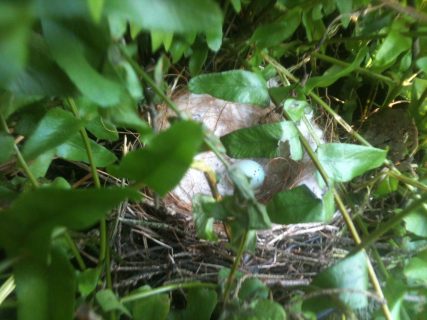I was always glad for summer’s arrival and the end of school — finally I could read what I wanted to read.
Our house had plenty of books, but we didn’t have air conditioning or much shade. The library, on the other hand, was shaded and air conditioned, and, I need hardly say, had even more books.
Charlotte’s Web was for many years the first book I read after school let out for the last time — it is so many ways a long prose poem in praise of the joys and sorrows of summer, which is beautiful, and full of life, but like all things, it comes to an end, and starts the cycle over once again.
The earliest summer days on a farm are the happiest and fairest days of the year. Lilacs bloom and make the air sweet, and then fade. Apple blossoms come with the lilacs, and the bees visit around among the apple trees. The days grow warm and soft. School ends, and children have time to play and to fish for trouts in the brook. […] Now that school was over, Fern visited the barn almost every day, to sit quietly on her stool. The animals treated her as an equal.
E.B. White evokes the long, aimless and yet tiring days of childhood summers so beautifully, and, through the death of Charlotte, the sorrow and death that marks each summers’ end. (‘Summer is over and gone,’ repeated the crickets.”)
After Charlotte’s Web I began reading A Tree Grows in Brooklyn every summer. I loved the attention to the details of Francie’s material existence, her food, her clothing, the rooms that the Nolan family occupied, and the way she would set herself up for a cozy time of reading and re-reading her favorite books on Saturdays: out on the fire escape, with a glass of cool water and a sweet or other special treat. It was exactly how I liked to read: in a ‘nest’ that I’d prepared: like Fern quietly on her stool, immersing herself in the world of the barn, I craved total immersion.
Each summer I’d participate in the library’s reading program, which was my favorite kind of group activity because it wasn’t much of a group activity at all and I could win a prize simply for what I was going to do anyway: read more books than most of the other children my age.
This is not to say that a summer spent in pursuits other than reading are a waste of time. I don’t think that’s true at all.
“Wasting” time, though — or, better, spending time doing exactly what you wish — is, I think, a gift that summer offers kids. It certainly was a gift to me.
Every couple of weeks, it seems, I come across another news article or book wringing its metaphorical hands that kids don’t play enough; aren’t physically active enough; don’t know how to structure their own time and plan their own activities.
“Overschooling” and “overparenting” are often pointed out as culprits; addiction to devices nearly always comes up.I think there are very good reasons to cultivate a bit of aimlessness in ourselves and in our children. It is hard to discover what you truly love, what truly moves you, when you are constantly ticking things off a productive list.
When I consider the things that I know most about—and the things I am most interested in—I am struck that very little of what I know and love deeply was forced upon me by others. Creativity and pleasure and satisfaction, Peter Gray and other researchers (notably, Mihaly Csikzentmihalyi) have found, is much less likely to develop in coercive and stressful situations.
And so I’d like to invite you to pull up a barn stool next to Fern this summer. I’ll be perched there too.






